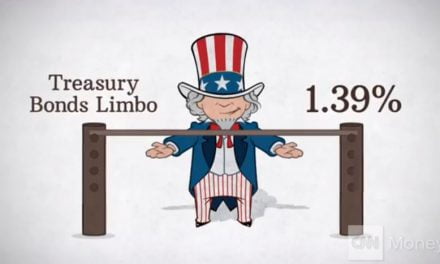A new academic paper written by Brent T. White, a law professor at the University of Arizona, calls on 15 million American homeowners to ignore the social messages of shame, and walk away from their underwater homes.
The paper, titled “Underwater and Not Walking Away: Shame, Fear and the Social Management of the Housing Crisis,” argues that homeowners are losing out on hundreds of thousands of dollars by trying to float underwater homes.
White acknowledges that there are credit score repercussions, but explains that staying current with all other creditors can return good credit within two years. The long-term benefits of financial freedom outweigh the relatively short time that the homeowners would be in a credit-crunch. And as long as homeowners are being strategic about their default, they can just take out the credit for their major purchases before they walk out on their underwater situation.
For anti-deficiency states such as California, this credit-crunch is essentially the only drawback to defaulting as a financial strategy since loans taken out to purchase a home (or those simply foreclosed on by a trustee’s sale) provide no recourse for the lender to collect from the homeowner.
So why are so many homeowners staying in their underwater homes?
White cites what he calls “the social control of the housing crisis.” Groups with an interest in maintaining general control over homeowners (primarily lenders, the government and the general media) continue to toe the line that walking away is an immoral practice.
But the flipside to this message, White reasons, is that while lenders handed out an obscene amount of subprime loans, which are largely responsible for destabilizing the market, they have failed to offer any real help to homeowners after the fact.
Only when a significant number of homeowners show their resolve and their intolerance for such double-handed treatment, and walk away from their homes will lenders step up and begin to offer the help homeowners need: reduction of the principal on their loan balance to current market levels.
first tuesday take: The first tuesday long-standing take, and previously lone voice regarding walking away from underwater homes, is completely consistent with Professor White’s paper. The lenders, motivated by financial strain, are squeezing every last dime they can out of homeowners with their “extend-and-pretend” modifications.
And the federal government is just as satisfied with extend-and-pretend as lenders are. After having bailed out the banks, the government wants to insure the legitimacy of the bailout, and is putting immense pressure on lenders to look successful. Thus, banks are concerned with their short-term financial success, just as they were during the housing boom.
And once again, the welfare of homeowners and the health of future consumerism in California and the nation are overlooked. Homeowners must look out for their own interests by walking away from their underwater homes, and preserving their future income from payments on a dead-end mortgage.
For a more in-depth look at Professor White’s paper, see our full-length first tuesday article in the January 2010 edition of the journal.
Re: “Professor advises underwater homeowners to walk away from mortgages,” from The Los Angeles Times













I bought a scrap turbine aircraft engine and took pictures of it in my garage. I advertised it on craigslist as if rebuilt for 150,000.
The bank foreclosed on me. I refused cash for keys and they evicted me. I called the bank after it was relisted and sold. Where is my rebuilt aircraft engine? They never did a proper personal property eviction for items over $300. We settled for 100k check within 30 days.
Patrick L. said, “the reason so few people do it is because only a purchase money loan is no recourse”, this only a partially true statement in reality. Any lender who forecloses using a non-judicial foreclosure is barred from securing a deficiency judgment except for waste or fraud. Waste and fraud can also survive on a purchase money transaction as well. Since 99.999999999% of all foreclosures are non-judicial, the risk of deficiency judgments is low. Where the numbers get high are non-purchase juniors who do not foreclosure but become a sold out junior after the first forecloses.
Waste and fraud are often overlooked risks that should be given more value in an analysis. If a consumer took out a “liar loan” one in which the income was stated and did not actually match their actual income (overinflated) completing a loan modification or short sale package may actually give the lender the factual evidence necessary to file a fraud claim and thwart the anti-deficiency statutes and get a deficiency judgment against the borrower.
Editor at First Tuesday… that connection to stated income and fraud claims would be nice article to supplement what you have done so far.
STOP blaming just the bankers. I remember the eagerness with which the buyers wanted to speculate, I remember the seminars about how to make millions in real estate, I remember the gov’t politically and monetarily supporting getting the “underpriviliged” into homes
As far as walking away – there is little stigma today, the reason so few people do it is because only a purchase money loan is no recourse. Did you forget the homeowners, eager to spend their new found wealth, re-financing, thereby changing the nature of their home’s debt?!?!
I agree we need to hit bottom, but the people, and the gov’t of this country can’t help meddling.
I found it most interesting that while the owner lost his house from failure to pay, the owner was an excellent renter (with a foreclosure on his/her credit report) because my rents were in line with what the owner could pay with his income, not the inflated payment he was saddled with. And just think he can buy the rental as a primary home in 24 months. His credit otherwise was as agreed.
It’s still somewhat double edged!!!!